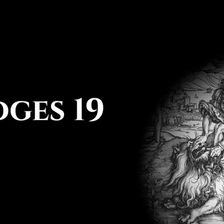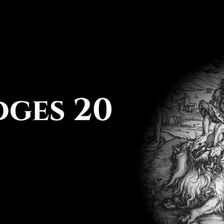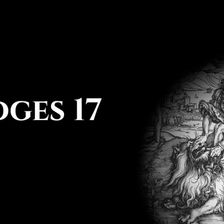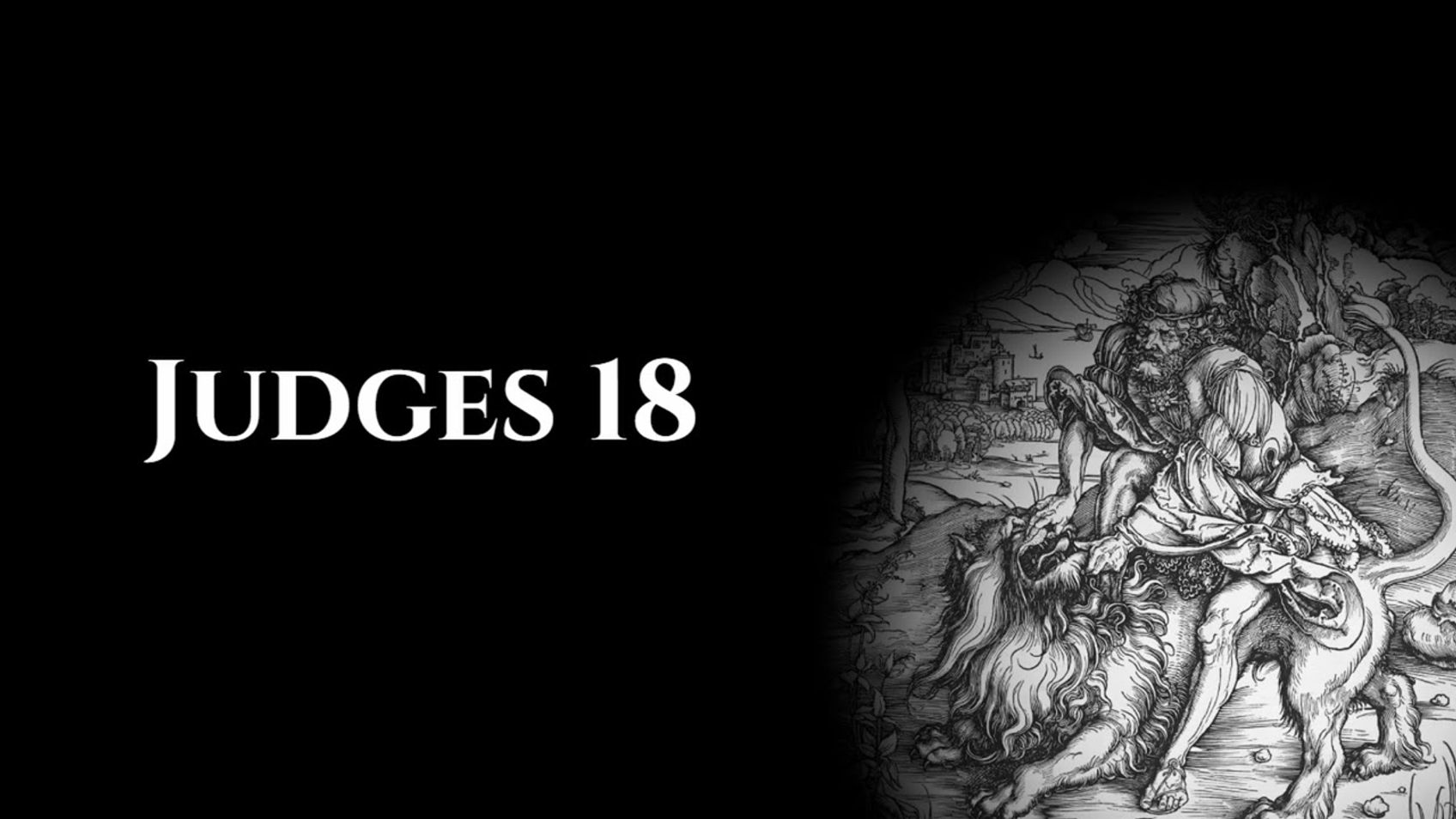Judges 18
March 16, 2022

Alastair Roberts
The Danites steal Micah's images and Levite.
My reflections are searchable by Bible chapter here: https://audio.alastairadversaria.com/explore/.
If you are interested in supporting this project, please consider supporting my work on Patreon (https://www.patreon.com/zugzwanged), using my PayPal account (https://bit.ly/2RLaUcB), or buying books for my research on Amazon (https://www.amazon.co.uk/hz/wishlist/ls/36WVSWCK4X33O?ref_=wl_share).
You can also listen to the audio of these episodes on iTunes: https://itunes.apple.com/gb/podcast/alastairs-adversaria/id1416351035?mt=2.
More From Alastair Roberts

Judges 19
Alastair Roberts
March 17, 2022
The Levite and his concubine.
My reflections are searchable by Bible chapter here: https://audio.alastairadversaria.com/explore/.
If you are interes

Judges 20
Alastair Roberts
March 18, 2022
War against Benjamin.
My reflections are searchable by Bible chapter here: https://audio.alastairadversaria.com/explore/.
If you are interested in s

Judges 21
Alastair Roberts
March 19, 2022
Wives for the Benjaminites.
My reflections are searchable by Bible chapter here: https://audio.alastairadversaria.com/explore/.
If you are intereste

Judges 17
Alastair Roberts
March 15, 2022
Micah, his mother, and the Levite.
My reflections are searchable by Bible chapter here: https://audio.alastairadversaria.com/explore/.
If you are in

Conversations in a Crisis: Part III: Reforming Our Political Imaginaries (with Rev Benjamin Miller)
Alastair Roberts
March 12, 2022
Faced with our challenge of remaining faithful within and addressing our various contemporary societal crises with wisdom, Christians and churches are

A Response to Social Trinitarianism: I. Definition
Alastair Roberts
March 9, 2022
Appeal is often made to the doctrine of the Trinity, yet confusion prevails concerning historic Christian orthodoxy's teaching on the subject and how
More on OpenTheo

What Is the Role of the Holy Spirit in Our Lives if He Doesn’t Give Us Instructions?
#STRask
February 23, 2026
Questions about the role of the Holy Spirit in our lives, advice for someone who believes in God intellectually but struggles to understand how to hav

Christmas Cranks and Christmas Blessings with Justin Taylor and Collin Hansen
Life and Books and Everything
December 17, 2025
If you are looking for a podcast where three friends talk about whatever they want to talk about and ramble on about sports, books, and grievances, th

Life and Ministry in Charlotte and in the SBC with Clint Pressley
Life and Books and Everything
December 15, 2025
In a rare cultural anomaly that may never be repeated in our lifetimes, the current SBC President and current PCA Moderator live in the same neighborh

Are Demon Possessions and Exorcisms in the New Testament Literal?
#STRask
December 11, 2025
Questions about whether references to demon possessions and exorcisms in the New Testament are literal, how to talk to young children about ghosts, an

How Can I Explain Modesty to My Daughter?
#STRask
November 27, 2025
Questions about how to explain modesty to a nine-year-old in a way that won’t cause shame about her body, and when and how to tell a child about a pre

Why Is It Necessary to Believe Jesus Is God?
#STRask
February 19, 2026
Questions about why it’s necessary to believe Jesus is God, whether belief in the Trinity is required for salvation, and why one has to believe in the

Sense, Sensibility, and Adam Smith with Jan Van Vliet
Life and Books and Everything
February 16, 2026
This year is a special anniversary for the United States as Americans celebrate 250 years of independence. But 1776 was an important year in more ways

Prove to Me That Jesus Is Not a Created Being
#STRask
January 26, 2026
Questions about why we should think Jesus is not a created being, and what it means to say God became fully human if part of being human means not bei

Did Jesus Prove He Wasn’t Sinless When He Overturned the Tables?
#STRask
December 29, 2025
Questions about whether Jesus proved he wasn’t sinless when he overturned the tables, whether Jesus’ response to the Pharisees in Mark 3:22–26 was a b

Could the Writers of Scripture Have Been Influenced by Their Fallen Nature?
#STRask
October 23, 2025
Questions about whether or not it’s reasonable to worry that some of our current doctrines were influenced by the fallen nature of the apostles, and h

Can You Recommend Good Books with More In-Depth Information and Ideas?
#STRask
January 22, 2026
Questions about good books on Christian apologetics, philosophy, and theology with more in-depth information and ideas, and resources to help an intel

The Heidelberg Catechism with R. Scott Clark
Life and Books and Everything
November 3, 2025
You may not think you need 1,000 pages on the Heidelberg Catechism, but you do! R. Scott Clark, professor at Westminster Seminary California, has writ

Are You Accursed If You Tithe?
#STRask
December 15, 2025
Questions about whether anyone who tithes is not a Christian and is accursed since Paul says that if you obey one part of the Mosaic Law you’re obliga

E. Calvin Beisner: Climate and Energy Policy
Knight & Rose Show
January 4, 2026
Wintery Knight and Desert Rose welcome Dr. E. Calvin Beisner to discuss climate and energy policy. They explore Biblical dominion and stewardship, con

How Do I Determine Which Topics at Work Are Worth Commenting On?
#STRask
January 5, 2026
Questions about how to determine which topics at work are worth commenting on, and a good way to respond when you’re in a group Bible study and hear e
